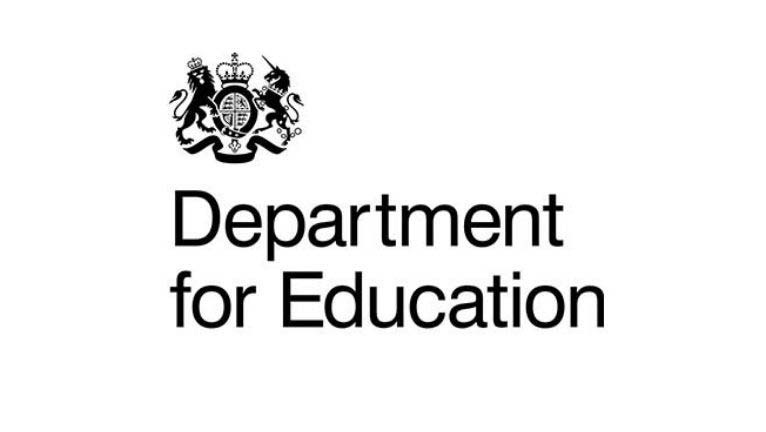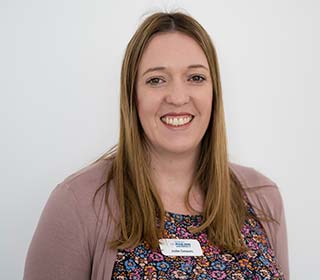PGCE Secondary Education with Chemistry
Become a Chemistry teacher and earn Qualified Teacher Status (QTS). Marjon is the top university in the UK for education-based courses in the Postgraduate Taught Experience Survey 2021. We've been training teachers for 180 years, we know education. Government-awarded bursaries of £27,000 are available for students on this course - contact us to find out more.

Entry requirements
A degree at 2:2 or above
GCSE English and Mathematics at grade 4 or grade C or above (or an equivalent qualification)
Experience of working with young people
We are committed to safeguarding and promoting the welfare of children and trainees. All trainees are expected to share this commitment and demonstrate consistently high standards of personal and professional conduct.
UCAS code Apply via gov.uk
UCAS institution code P63
Duration One year full-time or two years part-time
Full entry requirements
Any questions about postgraduate study at Marjon?
Contact Rachel Bailey-Lewis, our Student Recruitment Officer (Postgraduate).
Course Summary
Do you want to become an outstanding chemistry teacher? Our specialist PGCE in Secondary Science with Chemistry is a direct route to a career that teaches pupils about everything around them. You’ll provide them with first-hand experience of observing chemical phenomena up close and plenty of ‘wow’ moments.
This course develops a range of teaching styles appropriate to the delivery of the Sciences specialising in Chemistry within the National Curriculum and GCSE/A Level specifications, including conceptual understanding and progressions in learning, purposeful practical work, sequenced learning steps and links to different sector of the Chemistry industry.
The aim of this PGCE Secondary Science with Chemistry is to prepare trainee teachers for a first appointment as a teacher of Science in a secondary school and assess current developments in the subject and their possible effect on teaching in schools. To develop as a teacher, you will be learning about how to instil in pupils a sense of intrigue and enable students to develop understanding and form questions based both on the knowledge they already have and the insight they wish to gain in the future.
Although the subject specialism of this PGCE is chemistry, you will be required to teach biology, chemistry and physics at key stage three and four as part of your course as this reflects the organisation of Science teaching in the majority of Secondary schools.
Your training will show you how to make chemistry accessible and fun. We've been training teachers since 1840; Marjon knows education. As a result our trainees scored us 92% student satisfaction for postgraduate teacher training, this puts us in the top 25% quartile of all providers in England (Postgraduate Taught Experience Survey, 2020). Furthermore, our PGCE Secondary Science with Chemistry trainees can take up ‘enhancements’ linked to other curriculum subjects or areas e.g. PSHE or Special Education Needs and Diversity.
Why this course at Marjon?
Our tutors are engaged in hard hitting research ensuring our trainees learn the very best practice teaching methods
Our trainees scored us 92% student satisfaction for postgraduate teacher training, this puts us in the top 25% quartile of all providers in England (Postgraduate Taught Experience Survey 2020)
Our Teacher Education Partnership is a well-established partnership between the University and schools in the South West, London and Service Children’s Education
Modules for this course
Course Snapshot
“ The PGCE spiral curriculum based around a synergy between practice, policy and research, a weekly topic is explored though wider professional lens, independent research and specific subject studies where the subject pathways focus on theoretical and professional practice relating to that subject.”
Modules
1st Year
Professional practice in schools
Learning behaviours in context
Becoming a teacher: a reflective journey
Inclusion in the secondary classroom: maximising achievement
Understanding the learner: assessment and progress
This course is perfect if you’re curious about
Helping pupils direct their own learning to become curious about the world around them
Promoting a love of learning in your pupils and a passion for sciences
Making teaching make science come to life in the lab or through field work
Making links between Chemistry and career opportunities to raise your pupils aspirations
Ensuring that pupils are able to safely conduct their experiments
Preparing to apply for teaching jobs
“ The trainees I observed and met were fully prepared for the demands of teaching and it was evident that they have appreciated and benefited from the emphasis Marjon places on trainees’ wellbeing and the good practice from the University regarding this.”
What might you become?
Plymouth Marjon University is widely renowned for producing excellent teachers. We have superb links with over 300 partnership schools throughout the South West, London and overseas and our graduates teach in schools across the country. Our curriculum was praised by Ofsted for being "Designed to ensure you are well prepared for your wider professional responsibilities, including for pupils’ pastoral care. You will gain a secure understanding of how best to teach personal, social, health and citizenship education, in addition to your chosen subject specialism" (Ofsted, 2023).
We have a long established history of teacher education, we've got 180 years of experience in training teachers. A PGCE from Marjon represents a strong start to any teaching career. The Guardian University Guide 2024 ranked us Top 5 in the UK for education.
Working with:

Dept for Education
Marjon is recognised as a teacher training provider by the Dept for Education.
School-based learning may be available
How you’ll be taught and assessed?
How will you be taught?
Collaborative learning, critical reflection and a strong culture of support underpin PGCE Secondary Science with Chemistry, and trainees will enjoy a stimulating and effective learning environment from start to finish.
You will have a minimum of 120 days in school in 2 block placements and 12 weeks in University undertaking a range of activities. Teaching includes lectures, seminars, workshops, conferences, tutorials, independent study or research and school based training. Opportunities to be part of seminar and workshops add depth to your experience.
How will you be assessed?
Assessment relates to your development of practice in school. All are coursework based, you will generate reflective journals, portfolios, essays and presentations.

Giles is Programme lead for the Secondary PGCEs and Schools Direct.
Fees and funding
Fees UK students: £9,250
Fees for International students: £14,500
This fee covers your tuition and access to course-specific equipment and facilities, as well associated services including access to the library, study skills support, IT support, student support and wellbeing services and membership of the Student Union. There may be additional costs by course. Government-funded bursaries of £27,000 are available for UK students studying this course - contact our student finance team to find out more.
Funding available for this course
Our Student Funding Advisors offer confidential and impartial advice about your funding options.
Learn moreLecturers

Michelle teaches on our undergraduate and postgraduate teacher training programmes with a specialism in Mathematics and Early Years Education.

Jodie teaches on our teacher training courses, specialising in primary science as well as supporting students on placement. She is the Head of ITT and she also supports primary colleagues across the city and beyond through her work with Plymouth Science.

Claire is Programme lead for the Secondary PGCEs and Schools Direct. Claire's specialist subject is English and before joining Marjon she worked in various secondary schools in Exeter as well for South West Teacher Training. Her research interests are reflective practice, teacher identity and retention.




